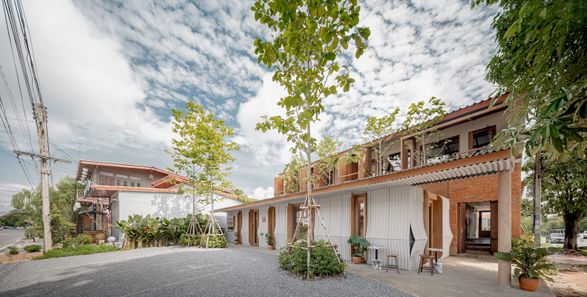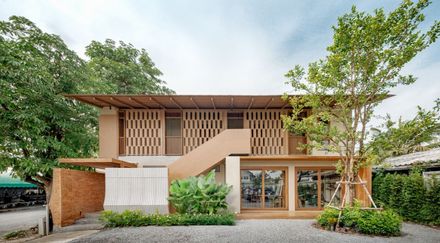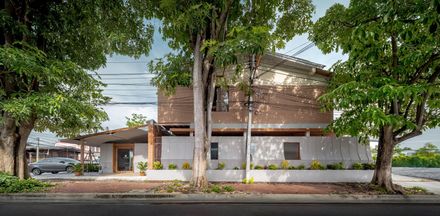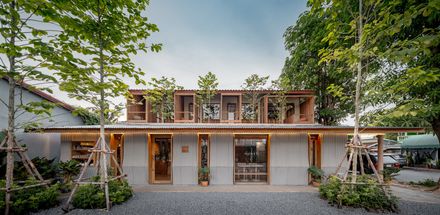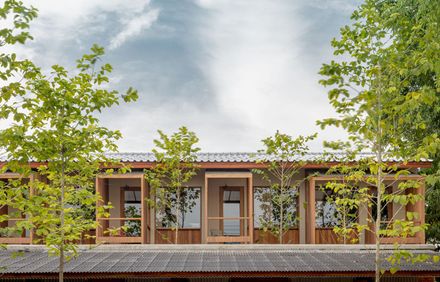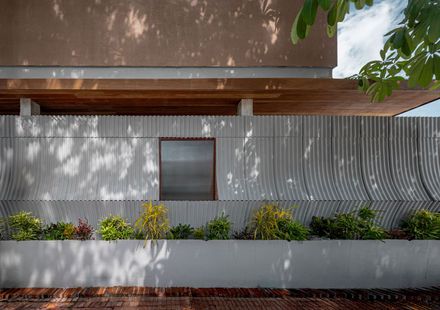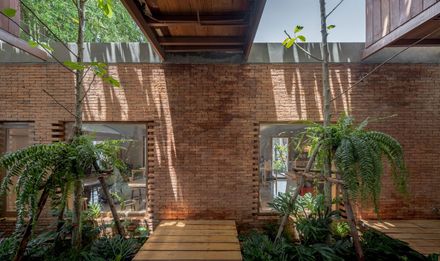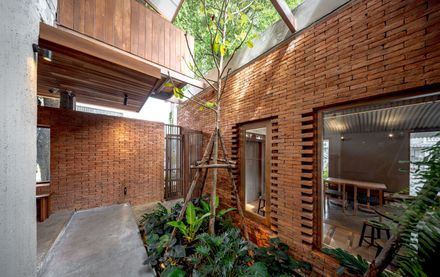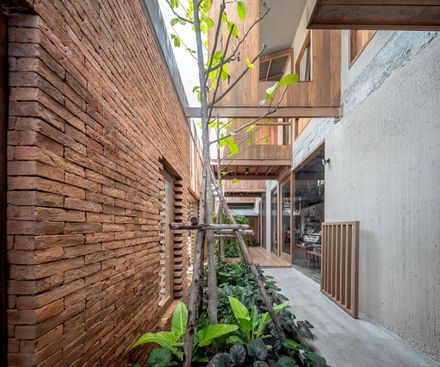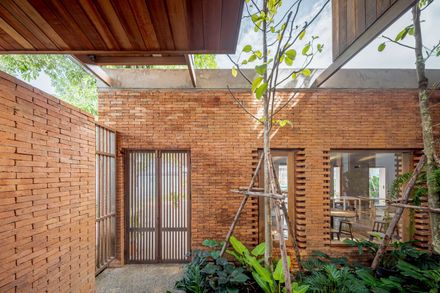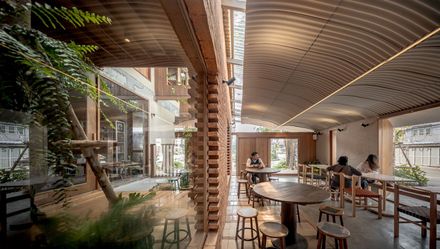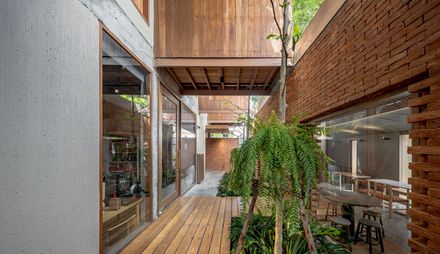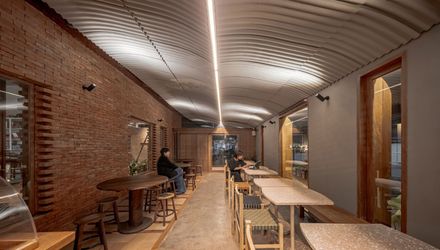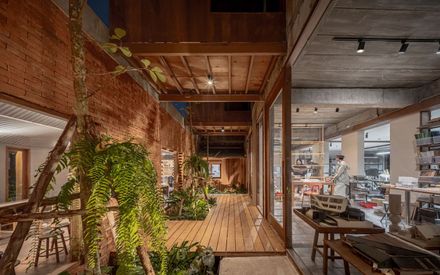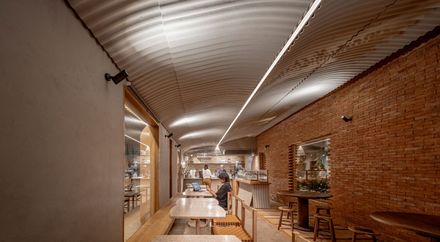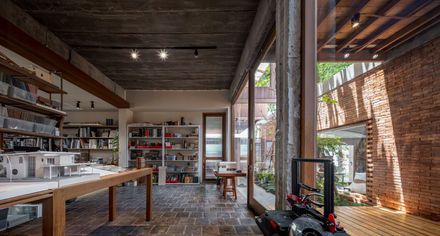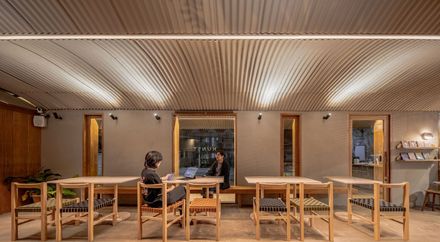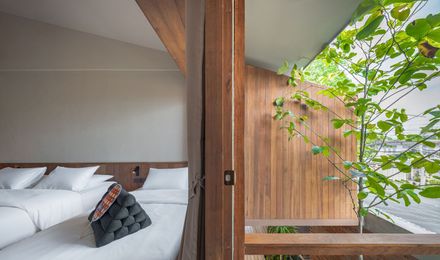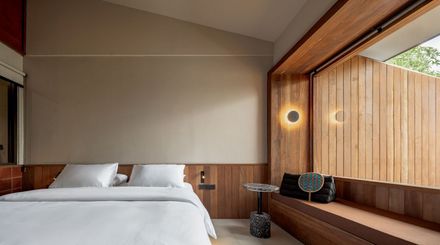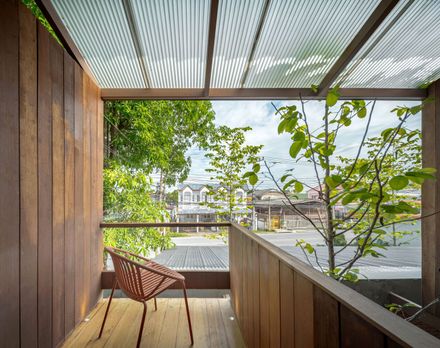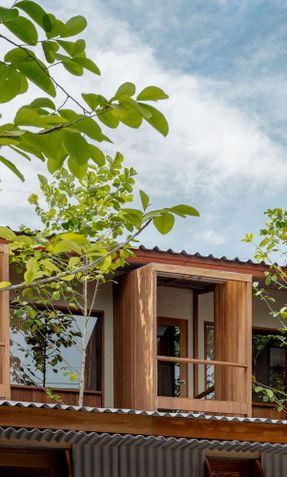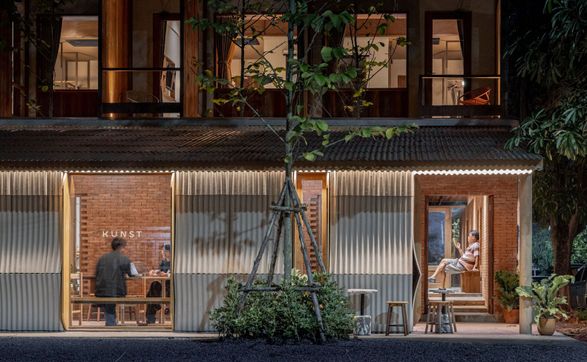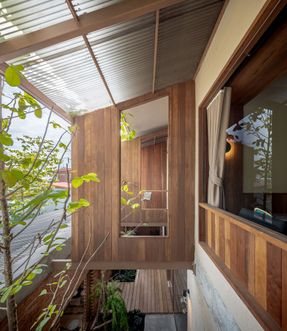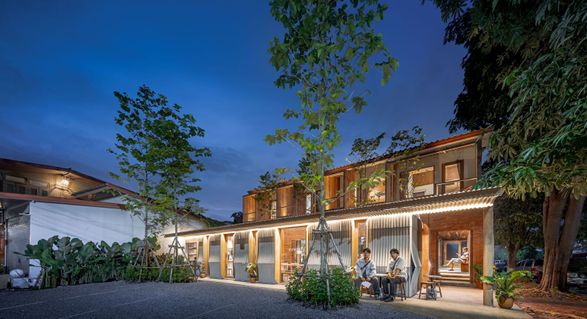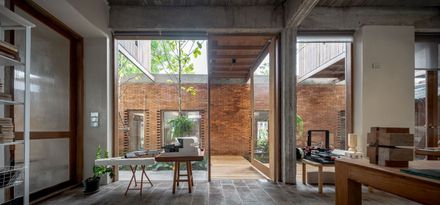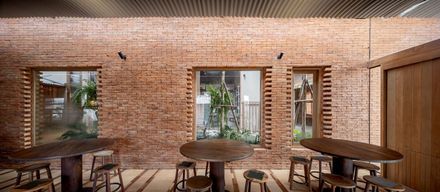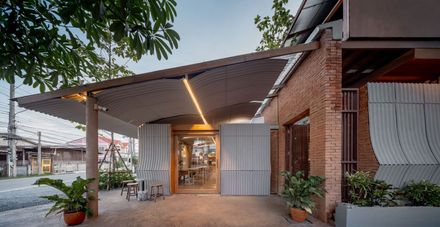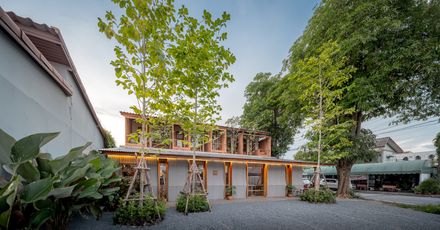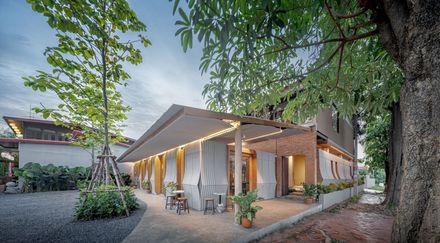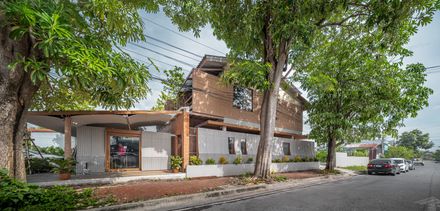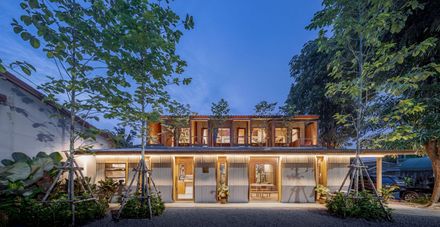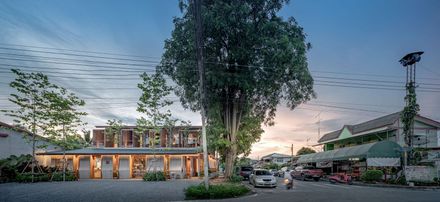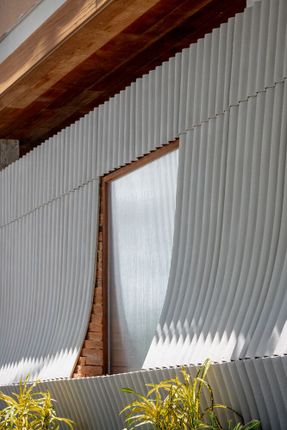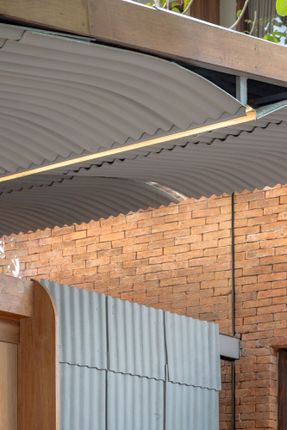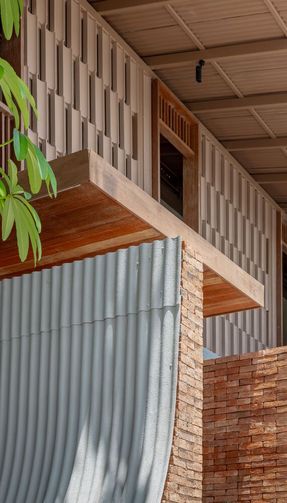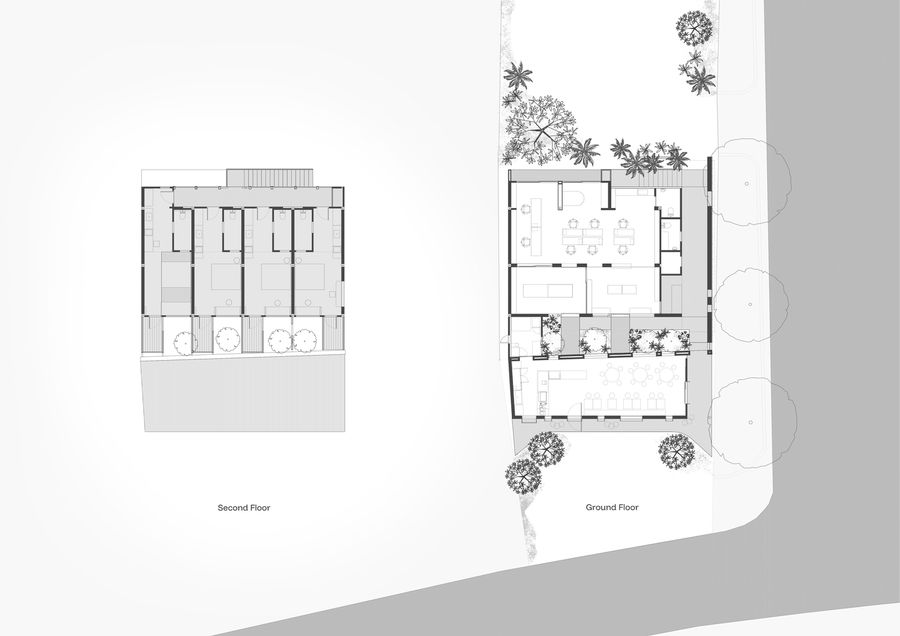
Kunst Ayutthaya
ARCHITECTS
Bodinchapa Architects
PHOTOGRAPHS
Witsawarut Kekina
LEAD ARCHITECTS
Phitchapa Lothong, Bodin Mueanglue
AREA
420 M²
YEAR
2025
LOCATION
Phra Nakhon Si Ayutthaya, Thailand
CATEGORY
Hospitality Architecture, Coffee Shop Interiors
REIMAGINING FAMILIARITY THROUGH EVERYDAY ARCHITECTURE
Kunst Ayutthaya emerged from the evolving needs of the BodinChapa team and their family, to cultivate a space that supports multidimensional living and encourages organic growth.
It was envisioned not simply as a building, but as a generative space—one that bears fruit, inspires, and sustains the collective growth and resilience of its people.
This momentum led to a search for a "new" space that simultaneously feels deeply familiar, crafted through the full lens of BodinChapa's design language and interpretation.
The name "Kunst"—borrowed from the German word for art—was intentionally selected. In Thai, it echoes the word "Khun(คุ้น)," meaning familiarity, intimacy, and warmth.
Kunst Ayutthaya thus embodies a synthesis of art and familiarity: the art and design encountered in our everyday lives, in moments between destinations, and in the quiet persistence of cultural, architectural, and artistic memory inspired by the historic city of Ayutthaya.
FAMILIAR FORMS REINTERPRETED
The design draws on the overlooked imagery and materials of daily life in old Ayutthaya—an architecture of subtlety, often unnoticed yet deeply ingrained.
A key example is the use of small-curved corrugated roofing sheets, typically seen at the eaves of traditional Thai houses.
Here, they are repurposed and celebrated—not as roofing, but as a primary surface treatment for façades, soffits, and boundary walls. Through this reinterpretation, the material transcends its original function, becoming a narrative tool that layers history, memory, and design intention.
REVITALIZING AN EXISTING STRUCTURE
The project is housed within a once-enclosed townhouse in the heart of Ayutthaya's historic island district.
The design process involved carefully peeling back opaque layers—solid walls, enclosed roofs—to open up the structure and invite natural light to the ground floor. The new layout is organized into three interconnected zones.
Kunst Bake 'n Cof — a bakery and coffee space that serves as the project's initial point of welcome
BodinChapa Architects — the team's own architecture studio, nestled deeper within the structure
Kunst Ayutthaya Hotel — occupying the upper floor, offering a calm retreat above
All three zones share the building's common areas: internal walkways and curated green spaces act both as spatial dividers and connectors, horizontally and vertically.
A central courtyard punctuated by a mature tree rises through the void between the hotel balconies above, visually and spatially linking both floors while maintaining privacy and distinction among the programs.
MATERIAL AS MEMOR
The design is grounded in materials that reflect local familiarity, both in tactile memory and sourcing.
Locally-made bricks and real wood envelop the existing structure, echoing the vernacular crafts of Ayutthaya: its timber-trading streets, artisanal brick kilns, and the quiet labor of the region's builders.
These materials were not chosen for perfection, but for authenticity—each imperfection bearing the mark of human intention and learning.
The construction process itself becomes part of the narrative, reflecting the design team's commitment to honoring local knowledge and craftsmanship.
DESIGNING FOR EMOTIONAL RECOGNITION
At the heart of this project lies a conceptual framework centered on choosing the familiar: familiar materials, familiar methods, and familiar images.
This intention invites visitors to feel emotionally connected to the space, whether through quiet recognition or unexpected discovery.
The architecture may prompt questions: about space, about material, about memory.
It may evoke a sense of understanding—or even reawaken one's awareness of the "familiarities" in their own surroundings.
In its essence, Kunst Ayutthaya is not about nostalgia.
It is about continuity through reinterpretation—an architectural approach that respects the past not by replicating it, but by reimagining it as a living, evolving experience.


